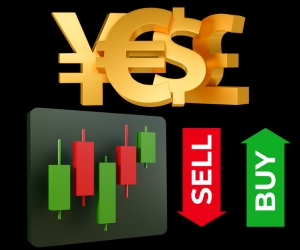WHAT IS SLIPPAGE AND WHY IT HAPPENS
Slippage refers to the difference between expected and actual price execution.

What Does Slippage in Trading Mean?
Slippage is a common phenomenon in financial markets that refers to the difference between the expected price of a trade and the price at which the trade is actually executed. When traders place a market order, especially during volatile conditions or off-peak hours, the final execution price may vary from their intended price. This occurs because market prices can change rapidly between the moment an order is placed and its execution.
This discrepancy can be either positive or negative. Positive slippage means the trade is executed at a better rate than expected, while negative slippage results in less favourable pricing. Although often viewed as a disadvantage, slippage is a natural component of trading—especially in markets with high volatility or limited order book depth. Slippage can affect various assets, including equities, forex, futures and cryptocurrencies.
In highly liquid markets with stable prices and swift order matching systems, slippage tends to be minimal. However, in markets subject to frequent pricing fluctuations or those that experience irregular volumes, slippage becomes more prevalent. It is most noticeable when using market orders, since these are filled at the best available price rather than at a fixed level.
Major contributors to slippage include liquidity imbalance, market volatility, and technological delays. Liquidity describes the ease with which an asset can be bought or sold without causing a significant movement in its price. In low liquidity environments, there may not be sufficient market participants to match incoming orders at a steady price, increasing the likelihood of noticeable slippage.
To mitigate slippage, many traders use limit orders, which specify a maximum or minimum price at which they are willing to buy or sell. While this provides price protection, it may reduce the chances of execution if the market doesn’t meet the specified levels. Ultimately, understanding slippage and accounting for it in trading strategies is essential for risk management and long-term performance.
Moreover, slippage is not unique to retail traders; institutional investors and algorithmic trading systems must also contend with this market dynamic. Advanced systems integrate techniques such as real-time liquidity analysis and execution algorithms to minimise the impact of unfavourable price movements.
While slippage is a fundamental aspect of global markets, its effects can be managed through technology, planning, and a solid understanding of market mechanics.
Why Slippage Increases Around News Events
Slippage often becomes significantly more pronounced during major news events. This is primarily due to the sharp increase in market volatility triggered by new economic data releases, earnings announcements, or geopolitical developments. During such times, traders and algorithmic systems flood the market with orders, reacting instantly to the incoming information. This flurry of activity can cause swift price fluctuations, reducing the accuracy of real-time quotes and widening bid-ask spreads.
Most news events coincide with a sudden surge in trading volume as participants reposition themselves based on the perceived implications of the announcement. However, despite the increased interest, liquidity can dry up temporarily. This is because many market makers and institutional traders may pull their quotes, fearing adverse selection. Essentially, they are reluctant to provide liquidity during uncertain conditions, leaving fewer active participants and creating an imbalance in the order book.
For market orders placed during such intervals, the risk of slippage multiplies. Price quotes displayed at the moment of order submission may no longer be available milliseconds later, especially in fast-moving markets like forex or indices during central bank announcements. The order then jumps to the next available price—which could be materially different from the requested one. This price gap manifests as slippage.
Economic reports such as GDP figures, inflation rates (CPI), unemployment data, or interest rate decisions from central banks (e.g. the Federal Reserve or European Central Bank) typically have an outsized impact on financial markets. The larger the deviation from expectations, the more dramatic the price movement—and, correspondingly, potential slippage.
Events perceived as high-impact are also known to trigger algos that execute thousands of orders in microseconds, outpacing manual traders and consuming the existing liquidity instantly. This leads to a thin market where price discovery becomes challenging and spreads widen quickly. The consequence is often significant slippage, especially for traders relying on market orders.
Another relevant factor is latency, or the delay between sending an order and its arrival at the exchange or broker. Even the fastest internet connections cannot always keep pace with electronic trading systems. By the time an order is processed, market conditions may have changed, resulting in poorer-than-expected execution.
Traders anticipating high-impact announcements often seek to reduce slippage by refraining from placing market orders just before these events. Others opt to trade only post-announcement, once price volatility stabilises and spreads normalise.
In summary, news-driven slippage is primarily a by-product of volatility, reduced liquidity, and fierce competition among market participants during brief but intense trading windows. Awareness and preparation can play a key role in mitigating its effects.
Low Liquidity and Slippage Explained
Low liquidity is another major driver of slippage, and its impact is particularly visible in thinly traded assets, off-market hours, or emerging market instruments. Liquidity refers to how easily an asset can be bought or sold in the marketplace without causing a significant change in its price. The less liquid a market, the higher the probability of experiencing slippage when placing trades.
In highly liquid markets, such as major forex pairs or blue-chip stocks, large volumes of orders can be processed with minimal price deviation. There are ample buyers and sellers willing to transact at or near current market prices, keeping bid-ask spreads tight and price movement relatively smooth. In contrast, in low liquidity environments, the scarcity of counterparties means that even modest-sized trades can trigger disproportionate shifts in price. This creates fertile ground for slippage.
For example, if a trader wishes to buy 10,000 shares of a company that only trades a few thousand shares per day, their order could significantly exceed the available supply at the quoted price. The excess demand must then be filled at higher price levels, resulting in upward slippage. The same applies in reverse for sell orders, leading to price deterioration.
Low liquidity conditions are also abundant during after-hours trading sessions, weekends in cryptocurrency markets, or during regional holidays when several major trading centres are closed. In these instances, the reduced market participation heightens the potential for slippage as fewer counterparties are available to execute trades at quoted prices.
Moreover, slippage in low liquidity markets is not restricted to market orders. Even stop-loss orders—which are essentially converted into market orders upon activation—can be affected. If a stop order is triggered at a time when few buyers or sellers are present, the order will be filled at the next possible price, which may vary significantly from the intended stop level.
Widened bid-ask spreads also represent a key marker of low liquidity. A wide spread implies that the difference between the highest price a buyer is willing to pay and the lowest price a seller is willing to accept is substantial. This range introduces greater uncertainty in trade execution, especially during volatile or thinly traded conditions.
Traders can manage slippage risk in low liquidity markets through several techniques. Using limit orders rather than market orders imposes a strict price threshold, although it carries the risk of non-execution. Additionally, breaking large orders into smaller tranches (a strategy known as “scaling in or out”) helps reduce market impact and secure more favourable pricing.
Institutional participants often assess order book depth, time-weighted average price (TWAP), or volume-weighted average price (VWAP) tools to optimise trade execution. These algorithmic strategies distribute orders over time, aligning them with prevailing market liquidity.
Inadequate awareness of liquidity conditions can lead to unintended losses. Traders should monitor trading volume, order book data, and historical slippage metrics before entering the market, particularly in unfamiliar instruments or during non-peak trading hours.
In summary, slippage in low liquidity markets is driven by a lack of counterparties, wide spreads, and abrupt price moves. Proactive management strategies and careful trade planning are key to reducing its impact.









